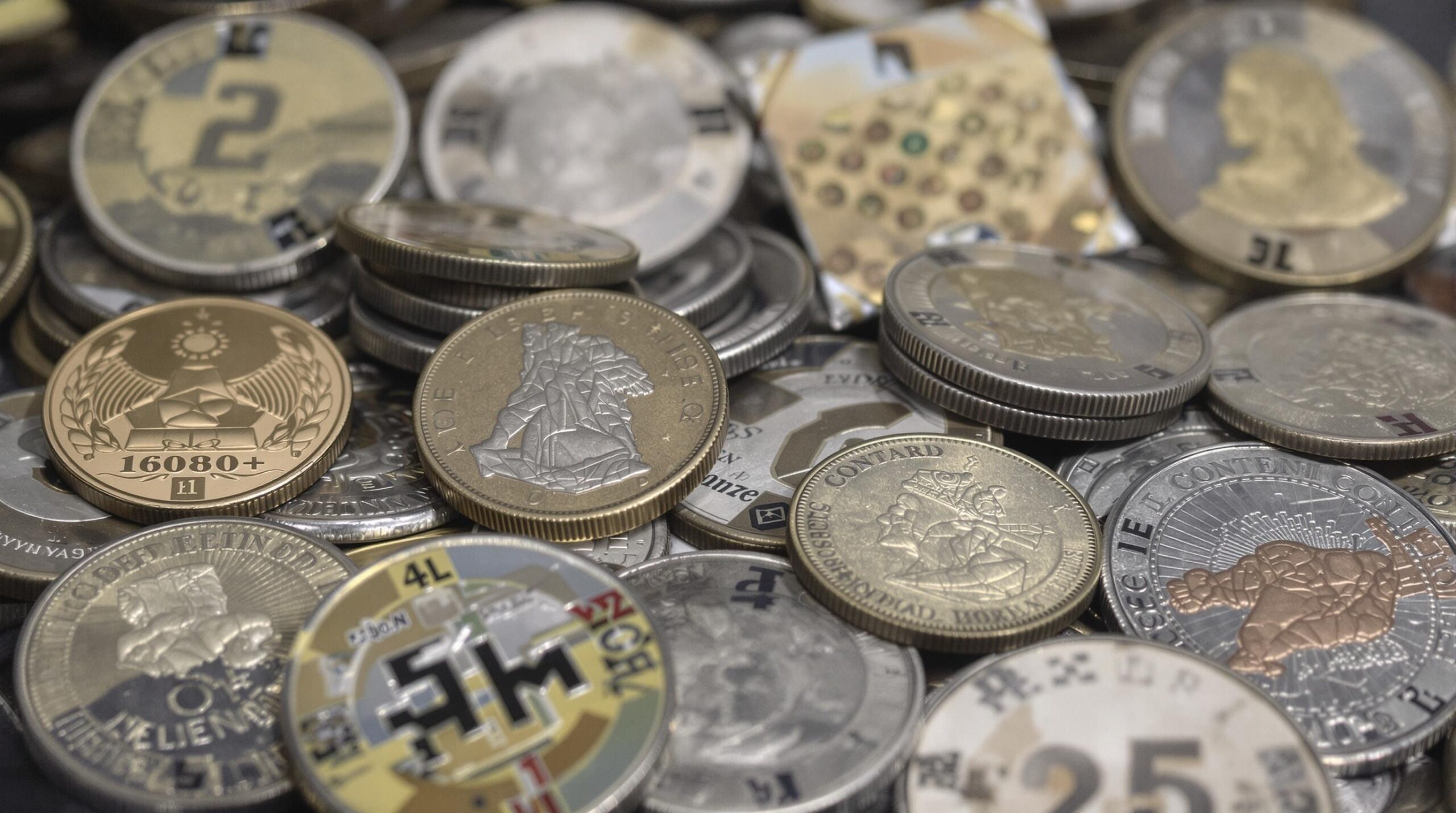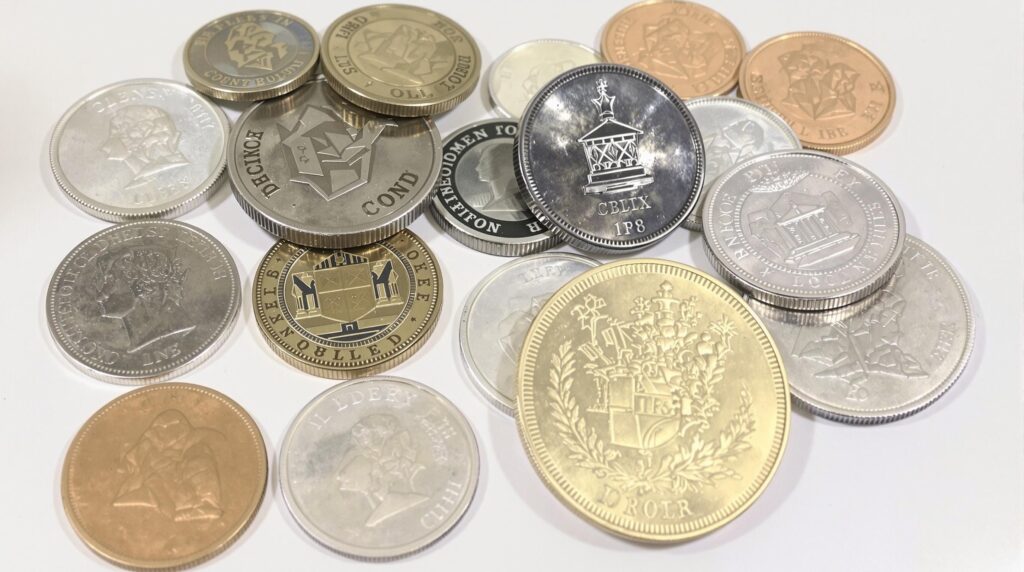Getting your coin collection professionally appraised provides crucial insights into its market value, authenticity, and investment potential in today’s growing numismatic market.
With the global coin market currently valued at $18.1 billion and projected to reach $43.9 billion by 2034, understanding exactly what your collection is worth has never been more important for collectors and investors alike.
Key Takeaways
- Professional appraisals reveal a coin’s true market value based on rarity, condition, and historical significance
- Appraisals are essential when your collection exceeds $5,000 in value or contains potentially rare pieces
- Most insurance companies require formal appraisals for collections worth more than $500-$2,500
- Authentication services detect counterfeits, with approximately 5% of circulated coins being fake
- Appraisal costs typically range from $50-$200 per hour, depending on the appraiser’s credentials
Understanding the Value of Coin Collection Appraisals
The coin collecting market is experiencing remarkable growth, with a projected 8.5% compound annual growth rate through 2034. This expansion makes proper valuation increasingly important. Investment-grade coins have delivered impressive 15% annual returns over the past three decades, outperforming many traditional investment vehicles.
Professional appraisers evaluate coins based on several critical factors: rarity, condition, mint errors, and metal content. They apply established grading systems from respected organizations like Professional Coin Grading Service (PCGS) and Numismatic Guaranty Corporation (NGC) to determine precise values.
Recent market trends show ancient Roman denarii and Civil War-era coins appreciating 20% annually since 2020. Online auction platforms now drive approximately 35% of rare coin sales, creating both opportunities and challenges for collectors seeking accurate valuations.

What Professional Appraisers Actually Do
A qualified coin appraiser does far more than just glance at your coins. They conduct thorough examinations using specialized tools, including magnification equipment, metallurgical analysis devices, and even simple tap tests, to verify authenticity.
Appraisers also stay current on precious metal prices, which significantly impact bullion coin values. Since 2020, silver prices have risen 22% while gold has increased 15%. These market fluctuations directly affect your collection’s worth, particularly for coins with high precious metal content.
The discovery of value can be dramatic. For instance, a 1933 Double Eagle gold coin sold for $18.9 million in 2021, highlighting how specialized knowledge can uncover extraordinary value in what might otherwise appear to be ordinary coins.
When You Should Definitely Get an Appraisal

Certain situations make professional appraisals essential. If you’re planning to sell or trade your collection, an appraisal prevents significant undervaluation. Consider that a 1916-D Mercury Dime in mint condition can be worth $25,000, but only $1,000 in poor condition—a price differential no collector wants to discover after a sale.
Inheritance situations legally require appraisals for probate courts. If you’ve recently inherited a collection, proper documentation is necessary for tax purposes and equitable distribution among heirs.
Other key moments when appraisals are crucial include:
- After significant market shifts (bullion coins may need reappraisal quarterly)
- For insurance renewal (policies typically cap coverage at $2,500 without appraisals)
- When your collection exceeds $5,000 in value
- After acquiring high-value pieces
The Cost of Professional Appraisals
Understanding appraisal costs helps determine if the investment makes sense for your collection. Basic appraisals typically range from $50 to $150 per session. For more detailed evaluations, certified numismatists charge $100-$200 per hour.
Grading services offer tiered pricing structures:
- Economy tier: $22-$25 per coin with a 70-day turnaround
- Standard tier: $35-$50 per coin with a 30-day turnaround
- Express tier: $65-$100 per coin with a 15-day turnaround
Additional costs may include annual membership fees (PCGS Silver membership is $69/year) and shipping/handling charges.
As a general guideline, appraisal fees shouldn’t exceed 5% of your collection’s total value. For a $10,000 collection, you should limit appraisal expenses to $500.
Choosing a Qualified Appraiser
Finding the right appraiser requires careful consideration of credentials and specialization. Look for professionals with ASA (American Society of Appraisers) accreditation, which requires at least 5 years of experience and peer-reviewed reports.
Verifying NGC or PCGS affiliation ensures adherence to universal grading standards.
For specialized collections, seek appraisers with relevant expertise. Someone who specializes in ancient coins may not be the best choice for evaluating modern mint errors.
Always check for transparent fee structures and request references or evidence of past appraisals.
You can find honest coin dealers through professional numismatic associations, local coin clubs, or by checking online reviews and testimonials.

Insurance and Legal Benefits
Standard homeowners’ insurance policies typically limit collectibles coverage to $1,000-$2,500 without specialized documentation. For valuable collections, this creates a significant coverage gap. Most insurers require appraisals for collections exceeding $500 in value.
For example, a $50,000 collection would need detailed documentation to secure proper coverage against theft, damage, or loss. The IRS also mandates accurate valuations for tax purposes, particularly for estate settlements or charitable donations.
To maintain accurate coverage, experts recommend updating appraisals every 3-5 years or whenever significant market shifts occur. This regularity ensures your insurance protection keeps pace with your collection’s changing value.
Potential Drawbacks to Consider
While appraisals offer numerous benefits, they do come with considerations. The cost-to-value ratio is important—for small collections, appraisal fees might outweigh potential benefits.
Large collections of 500+ coins may require 8-12 hours of expert time, representing a significant investment.
Many collectors also face the emotional challenge of reconciling personal attachment with market reality. Your grandfather’s cherished coin collection might hold tremendous sentimental value while having modest market value.
Privacy concerns arise with high-value collections. Documentation creates a paper trail that some collectors prefer to avoid for security reasons. These factors should be weighed against the benefits when making your decision.
Making the Right Decision for Your Collection
For collections exceeding $5,000 or containing potentially rare or error coins, professional appraisals are virtually essential. Authentication through NGC and PCGS significantly enhances resale credibility and often increases realized prices at auction.
Comprehensive documentation should include photos, purchase receipts, and grading certificates. This paperwork creates a clear provenance that supports insurance claims and simplifies eventual sales or estate distributions.
When considering timing, factor in the current market growth of 8.5% annually. In rapidly appreciating segments like ancient coins, more frequent appraisals may be justified to capture value increases. For a comprehensive understanding of the appraisal process, you might want to review coin appraisal guides that provide detailed information.
Ultimately, the decision to have your coin collection appraised depends on your specific circumstances, collection value, and long-term objectives. For serious collectors and investors, professional appraisals provide crucial documentation, insurance protection, and market insights that justify the investment.
Before you go…
Hopefully, this article has helped you decide whether to appraise your coins. Whether you’re just starting out or looking for new ideas, we’ve covered everything from budgeting to buying to displaying.
Check out my next article: “Are Funko Pops Worth Collecting? 5 Rarest and Most Expensive Funko Pops.”
Related Articles:

